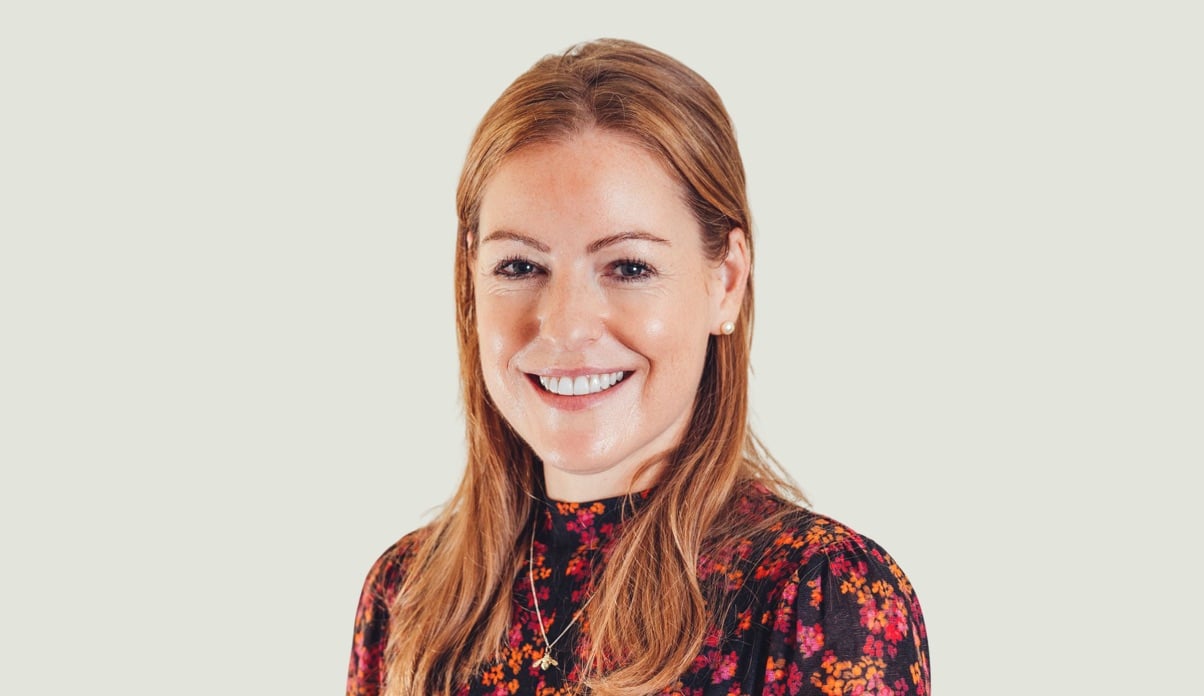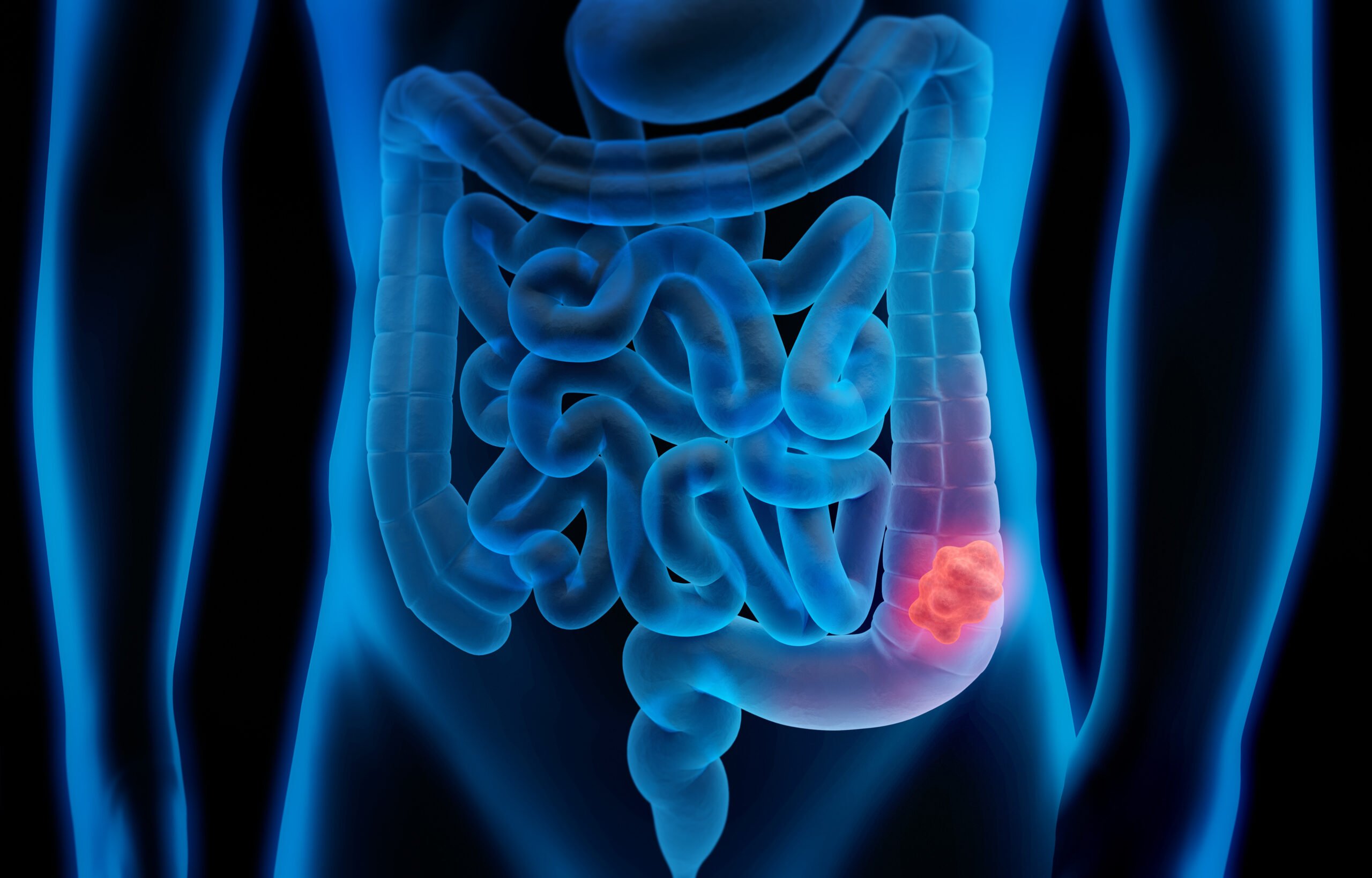In this article, I will discuss the signs and symptoms of bowel cancer, the main risk factors, the impact of a family history, and I will explain the screening process for early detection.
What is bowel cancer?
Once food passes beyond our stomach it continues within our digestive system known as the bowel, with the small bowel feeding digested food into the large bowel, comprised of the colon and rectum.
When we refer to bowel cancer we are referring to cancer in the large part of the bowel. This is therefore also known as colorectal, colon or rectal cancer.
It is the fourth most common cancer in the UK, affecting 44,000 people annually. Over 90% of cases occur in individuals over 50, although, sadly, cases among those aged 25-49 are rising. In England, there has been a 3.6% annual increase in this younger age group over the last decade, as reported in The Lancet Oncology.
Survival rates have improved over time, thanks to early detection through screening and advancements in treatment. Like all cancers, early detection is crucial for the best outcomes. When diagnosed early, bowel cancer is curable.
What are the symptoms of bowel cancer?
Symptoms of bowel cancer can vary depending on where the cancer is in the bowel and the size of the tumour. Common signs and symptoms to watch for include:
- A change in your stool habit: You might suddenly pass stools more often or start to suffer with constipation and/or diarrhoea. You may also feel that you can’t fully empty the bowel
- Bleeding from the back passage: This could be bright red in colour on wiping or within your stools. Your stools might become black and foul smelling. You may also feel a lump around your back passage region
- Weight loss: It’s important to tell us if you have had unintentional weight loss
- Tummy discomfort: Tummy cramps, pain or bloating which is new and not fading
- Fatigue: Feeling more tired than usual
- Anaemia: A blood test shows that you have low haemoglobin levels
If you notice any of these symptoms, book an appointment with us. While they don’t always indicate bowel cancer, they do warrant a check-up.
What are the risk factors?
Most bowel cancers are of unknown cause however there are some risk factors which can make you more susceptible to bowel cancer and cancer research has found around 54% of bowel cancer cases are preventable.
Some of these risk factors you have no control over such as increasing age (especially over 50) however a few of these risk factors are lifestyle related and therefore modifiable. Making small changes now could help reduce your overall risk:
- Low fibre diet
- High intake of processed meats
- Obesity
- Alcohol consumption
- Physical inactivity
- Type 2 diabetes (often linked to obesity)
What makes you high risk?
Certain factors may place you in a high-risk category for bowel cancer and would lead to additional screening. These include:
- A close relative (parent, sibling or child) diagnosed with bowel cancer before age 50
- Two or more close relatives diagnosed with bowel cancer at any age
- A relative with a known inherited (genetic) condition which is linked to bowel cancer such as Familial Adenomatous polyposis (FAP) or Lynch syndrome
- A history of polyps (non-cancerous growths) in your bowel which would have been noted on a previous colonoscopy. Many bowel cancer cases develop from these. It is important to note that not all polyps develop into cancer however removing them as part of a colonoscopy procedure can lower your risk.
- Inflammatory bowel diseases such as Crohn’s disease or ulcerative colitis
What is the current NHS screening programme?
Screening aims to detect bowel cancer early, often before symptoms develop.
The NHS uses a Faecal Immunochemical Test (FIT), a stool sample test that checks for blood. If positive, a follow-up colonoscopy is performed. This procedure, done under sedation, examines the colon and can remove precancerous polyps.
Currently, the NHS send a FIT kit in the post every two years to those aged 54-74. There’s a planned expansion to include 50-53-year-olds. If you are deemed as “high-risk” of bowel cancer with a strong family history or underlying bowel conditions then the screening pathway is different and it might be that you will require a colonoscopy as early as 40yrs old.
What is our current private screening programme?
Privately, we suggest that you have your first colonoscopy at 45 if you have a family history and at 50 if you have no family history. This first colonoscopy is to look for polyps. If there are polyps present, your gastroenterologist will recommend repeat colonoscopy every 3 to 5 years depending on the type of polyps found. If there are no polyps present, your gastroenterologist will recommend a second and final colonoscopy 10 years later just to make absolutely sure that no Polyps have formed. Thankfully, a polyp generally takes a long time before it is likely to change into cancer.
We recommend annual stool (FIT) testing either on the NHS or privately from the age of 50. At Sloane Street Surgery this can be done as part of an annual medical, at a normal consultation or you can book a FIT test on its own.
If you are concerned you might be within the “high-risk” category then please do have a chat with us as we might need to refer you on for genetic testing or to a gastroenterologist who can discuss your screening options in more detail.
Why are bowel cancer rates rising in people under 50?
As I mentioned earlier, sadly it is predicted that rates of bowel cancer are to rise by a third for 25–49-year-olds. However, the bowel cancer deaths within this age range still account for less than 5%, with the remaining being over 50.
The main factor is due to a poor lifestyle; increase in ultra processed foods, obesity and reduced levels of exercise. All these factors can be modified.
With this increase in cases, it’s important for you to be aware of what symptoms to look out for, and I encourage you to embrace the screening programmes that we offer and to discuss any family history or concerns with us.
If you have any questions or would like to discuss this further, please do get in touch. You can book an appointment online here or give us a call on 0207 245 3999.
About the author

BSc (Hons) MBChB MRCGP
“Long consultation times allow us to really get to know our patients and treat them in a holistic fashion which ultimately helps us to give the best care”.
I’ve worked across a range of medical specialities including obstetrics and gynaecology, sexual health, care of the elderly and mental health.
Since 2019, I’ve spent time working as a Resident Medical Officer at King Edward VII Hospital but was keen to continue private practice work as a General Practitioner, joining Sloane Street in August 2022.
In addition to my private work at Sloane Street, I work for the NHS in South West London and continue to enjoy acute medicine, helping with pre-hospital care at events such as the London Marathon.



